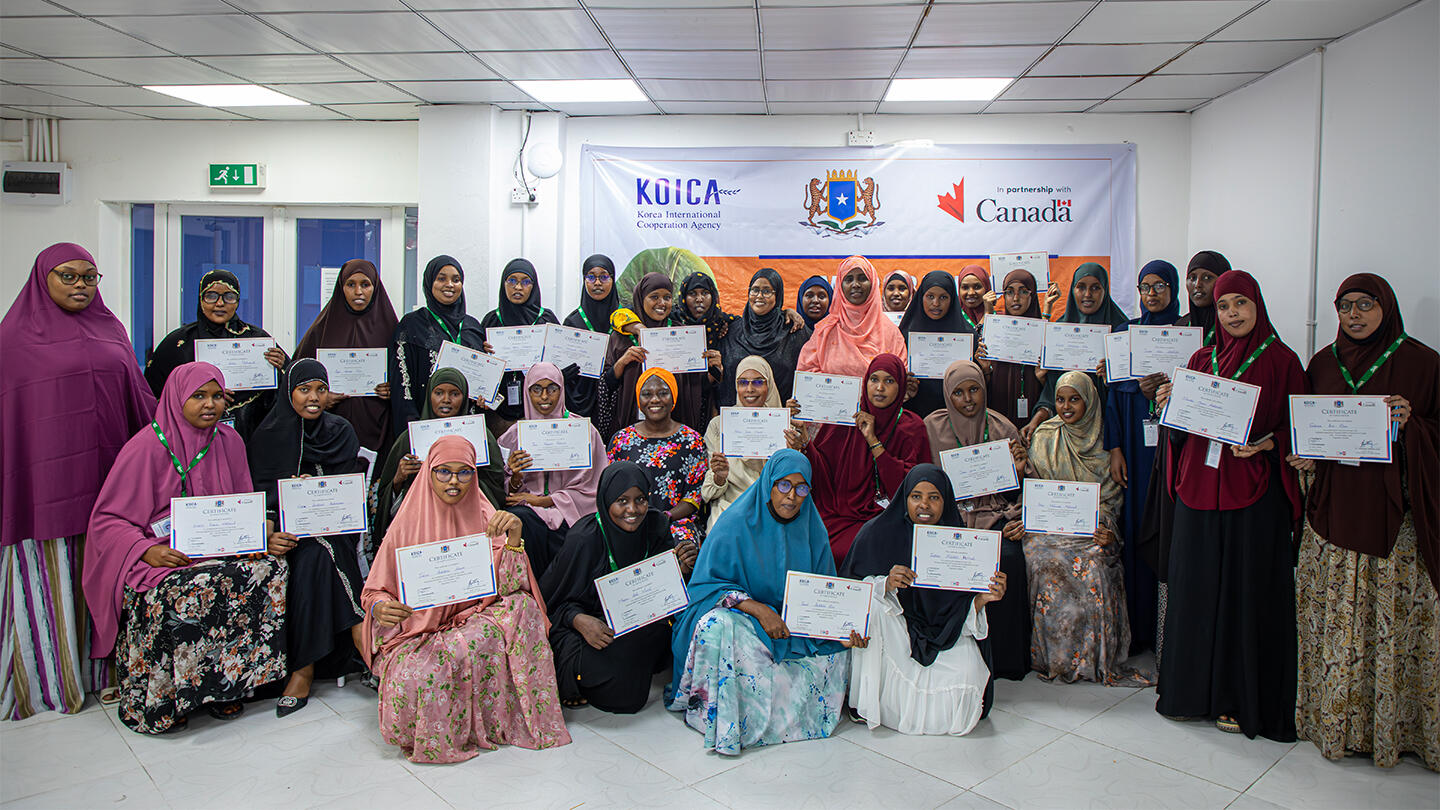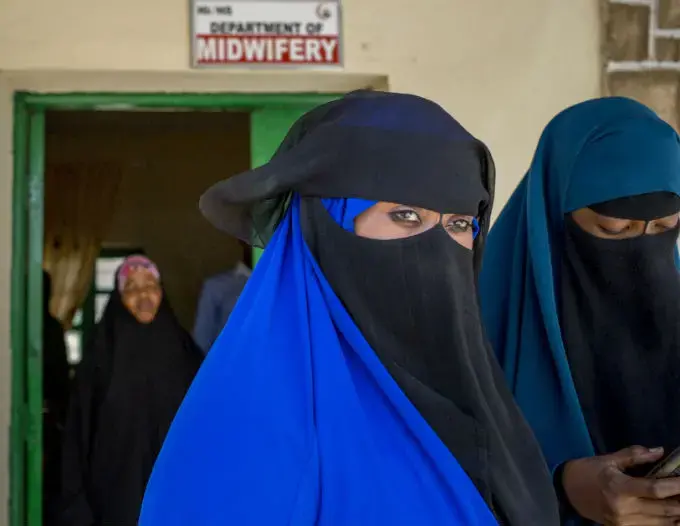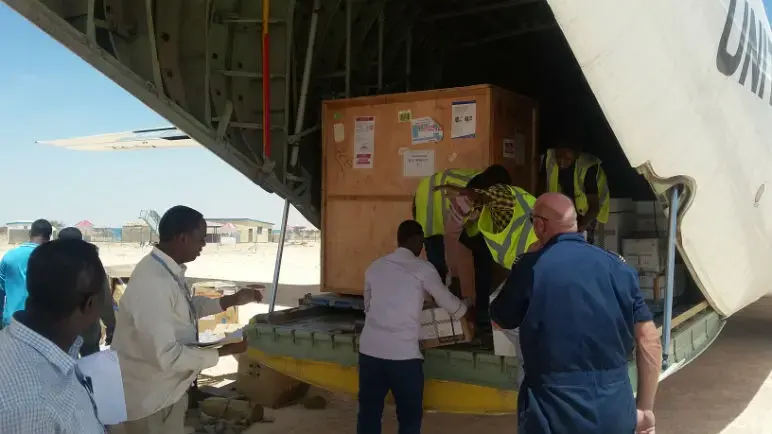In a world increasingly impacted by emergencies and crises, the ability to respond swiftly and effectively to the sexual and reproductive health (SRH) needs of affected populations has never been more vital. In Somalia, where humanitarian challenges are an ongoing concern, the United Nations Population Fund (UNFPA), in collaboration with the Ministry of Health (MoH), took a critical step towards strengthening the country's health system and enhancing its emergency response capacity. This was achieved through a groundbreaking initiative to train midwives and reproductive health managers in the Minimum Initial Service Package (MISP) for Reproductive Health.
From November 24th to 28th, 2024, at the SKA Hotel in Mogadishu, 50 midwives and reproductive health managers from across Somalia, including Somaliland, gathered for an intensive training program. With the support of the government and people of Canada and Korea (KOICA), this training aimed to equip healthcare professionals with the skills and knowledge required to deliver quality reproductive health services in the most challenging of settings. The training was not only focused on the technical aspects of MISP but also served as a platform for the participants to reflect on their roles as first responders in times of crisis.
The cohort included 30 midwives who were selected to join the newly launched Humanitarian Midwives Surge Roster initiative. This initiative was designed to ensure that highly trained midwives could be rapidly deployed to respond to emergencies, offering immediate care to those in need. The goal was clear: to guarantee that the SRH and gender-based violence (GBV) needs of affected populations—particularly women, girls, and people with disabilities—were met effectively during emergencies.
The training covered a wide range of topics crucial to responding to reproductive health emergencies. Participants were introduced to the MISP framework, a set of essential services that must be provided during the early stages of an emergency. They learned about managing sexual violence cases, ensuring maternal and newborn health, preventing unintended pregnancies, providing family planning services, and addressing the emotional and psychological needs of survivors of gender-based violence.
The training also emphasized the importance of self-care and mental health, addressing the risks of burnout that health professionals often face in high-pressure environments. "We need to take care of ourselves so that we can take care of others," one participant reflected after a session on mental health and psychosocial support (MHPSS).
One of the key moments of the training was the session on preventing sexual violence and supporting survivors. The midwives learned how to provide clinical care for survivors of rape, including essential medical care, psychosocial support, and the importance of creating safe spaces. For many, this was not just training—it was a call to action. They left the session with a renewed sense of purpose, understanding the vital role they would play in safeguarding the dignity and health of women and girls in emergencies.
Another focal point was the Surge Midwives Roster initiative, where participants engaged in discussions on how to effectively implement the roster in their respective regions. These midwives would become the first responders during emergencies, ensuring that reproductive health services were integrated into the humanitarian response from the very beginning.
Throughout the training, the methodology was highly interactive, with a mix of participatory lectures, group discussions, Q&A sessions, and practical skill demonstrations. The hands-on demonstrations, such as neonatal resuscitation and active management of the third stage of labor (AMTSL), were particularly appreciated by the participants, many of whom had limited experience with these emergency procedures.
Despite an unforeseen challenge—a last-minute venue change that delayed the start of the training by a day—the facilitators adapted quickly, ensuring that all the essential MISP objectives were covered. The participants were not only grateful for the wealth of knowledge gained but also impressed by the dedication and flexibility of the training team.
Upon completion of the training, the midwives and reproductive health managers demonstrated significant improvement in their knowledge and skills. Pre-test scores ranged from 2.2/10 to 7.2/10, but by the end of the training, post-test scores had improved to between 2.5/10 and 8.3/10. The feedback from the participants was overwhelmingly positive. Many shared that they had never heard of MISP before but now felt confident in their ability to implement it in their work. One participant expressed, "This training has not only expanded my skills, but it has also deepened my sense of responsibility to protect women and girls in times of crisis."
The lesson learned was clear: diverse learning needs must be met through tailored, interactive training, combining theoretical knowledge with practical skills. For future initiatives, there is a need to continue mentorship and peer-to-peer support, ensuring that the midwives and reproductive health managers can apply what they’ve learned in their respective contexts.
In the coming months, the Humanitarian Midwives Surge Roster will be activated as a critical component of Somalia’s emergency response system, with the trained midwives ready to deploy and provide vital reproductive health services wherever they are needed most. Through this initiative, UNFPA and the Ministry of Health are not just training healthcare workers—they are building a foundation for a stronger, more resilient health system that can respond to the needs of vulnerable populations in times of crisis.
The road ahead will be challenging, but with these midwives leading the charge, there is hope. The commitment and courage displayed during this training offer a beacon of hope for the women and girls who will benefit from their expertise in the days to come.




